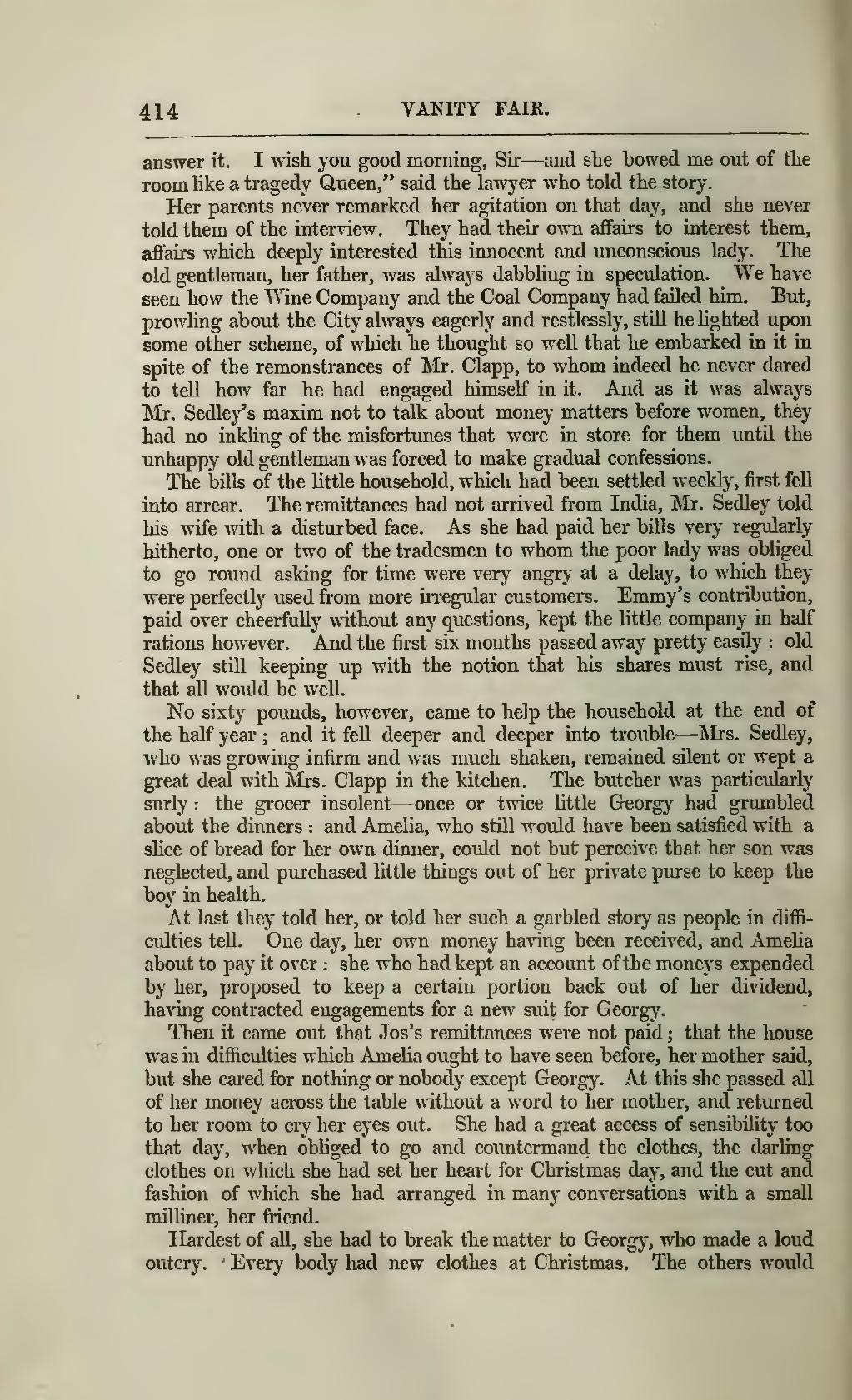answer it. I wish you good morning, Sir—and she bowed me out of the room like a tragedy Queen," said the lawyer who told the story.
Her parents never remarked her agitation on that day, and she never told them of the interview. They had their own affairs to interest them, affairs which deeply interested this innocent and unconscious lady. The old gentleman, her father, was always dabbling in speculation. We have seen how the Wine Company and the Coal Company had failed him. But, prowling about the City always eagerly and restlessly, still he lighted upon some other scheme, of which he thought so well that he embarked in it in spite of the remonstrances of Mr. Clapp, to whom indeed he never dared to tell how far he had engaged himself in it. And as it was always Mr. Sedley's maxim not to talk about money matters before women, they had no inkling of the misfortunes that were in store for them until the unhappy old gentleman was forced to make gradual confessions.
The bills of the little household, which had been settled weekly, first fell into arrear. The remittances had not arrived from India, Mr. Sedley told his wife with a disturbed face. As she had paid her bills very regularly hitherto, one or two of the tradesmen to whom the poor lady was obliged to go round asking for time were very angry at a delay, to which they were perfectly used from more irregular customers. Emmy's contribution, paid over cheerfully without any questions, kept the little company in half rations however. And the first six months passed away pretty easily: old Sedley still keeping up with the notion that his shares must rise, and that all would be well.
No sixty pounds, however, came to help the household at the end of the half year; and it fell deeper and deeper into trouble—Mrs. Sedley, who was growing infirm and was much shaken, remained silent or wept a great deal with Mrs. Clapp in the kitchen. The butcher was particularly surly: the grocer insolent—once or twice little Georgy had grumbled about the dinners: and Amelia, who still would have been satisfied with a slice of bread for her own dinner, could not but perceive that her son was neglected, and purchased little things out of her private purse to keep the boy in health.
At last they told her, or told her such a garbled story as people in difficulties tell. One day, her own money having been received, and Amelia about to pay it over: she who had kept an account of the moneys expended by her, proposed to keep a certain portion back out of her dividend, having contracted engagements for a new suit for Georgy.
Then it came out that Jos's remittances were not paid; that the house was in difficulties which Amelia ought to have seen before, her mother said, but she cared for nothing or nobody except Georgy. At this she passed all of her money across the table without a word to her mother, and returned to her room to cry her eyes out. She had a great access of sensibility too that day, when obliged to go and countermand the clothes, the darling clothes on which she had set her heart for Christmas day, and the cut and fashion of which she had arranged in many conversations with a small milliner, her friend.
Hardest of all, she had to break the matter to Georgy, who made a loud outcry. Every body had new clothes at Christmas. The others would
